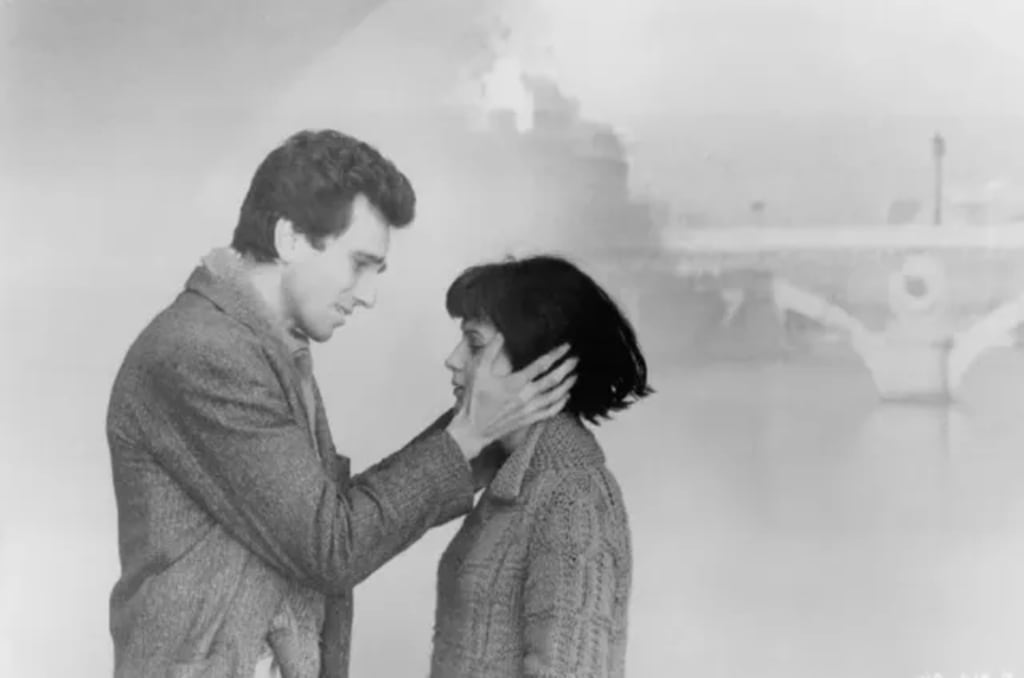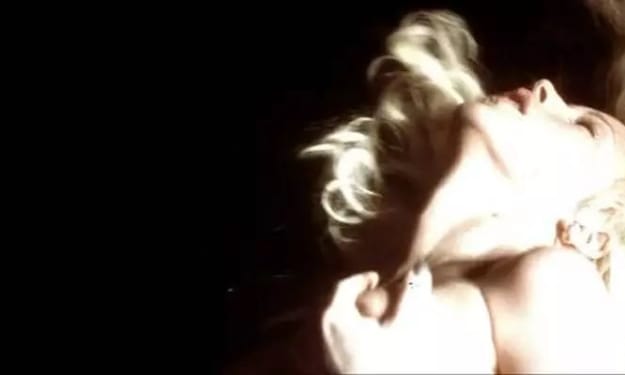In this way, the "sins" of the Soviet era have been told for decades
Viewers of the films of the 1960s and 1970s will naturally notice a feature that, with the exception of the works of the European New Wave directors, the rest of the directors liked to focus on politics and emotions.

The audience who often watches the films of the 1960s and 1970s will naturally find a characteristic, these films, in addition to the works of the European New Wave directors, the rest of the directors like to focus on the topic of politics and emotions above. Because these two aspects are the mainstream of the twentieth century, until the late eighties, because of the collapse of the Soviet Union, the Soviet East dramatic changes. Politics gradually moved from the film to a more obscure place. So much so that historical nihilism later dominated the creative stage of film and television. Before that, however, politics was a lingering element, and creators were full of love for this element.
If you remember the Prague Spring of the 1960s, you will know what Prague meant in the 1960s. Understanding this historical background will help us understand the film.
Spring in Prague" is the story of a surgeon who lives in Prague and meets many people of the opposite sex. Among them is the painter Sabina, who becomes obsessed with the young doctor Tomas, who meets the waitress Teresa after an unexpected operation in the countryside. Afterward, Thomas falls in love with Teresa, and Sabina drifts away from Thomas. However, in the 1960s, the Prague Spring happened. Forced to leave for Switzerland because Theresa had her picture taken in the street, Thomas went after her immediately. However, the harsh censorship system made the two people's life began to fall into a difficult situation. Therefore, Teresa decided to return to Prague.
In the face of the freedom from bondage, Thomas first did not understand, and then gradually let go of his heart, he finally decided to come to the countryside with Teresa, and the two people are thus living happily, however, good times do not last long, in the course of a car in the rain, because the brakes failed, a car of people unfortunately died. At this moment, Sabina, who was far away from the United States, heard the news and was devastated. The Eastern European country of Czechoslovakia could not give Sabina the artist warmth anymore because Tomas had Teresa, but after this departure, for Sabina, it was a permanent departure.
Prague Love has the traditional view of a film set in the 1960s, that of the rise of liberalism and the struggle of young people against politics. Why the struggle? The reason why young people were attracted to street politics was that the world was experiencing a new wave of overproduction brought about by post-war economic development. The economy was in the doldrums because of overproduction, so the unemployed workers and the young people who had no chance to get a job flocked to the streets and started street politics.
The ruling party of the Czech Republic was about to reform the existing economic system, but it was sanctioned by the Warsaw Pact countries for this action, which was the background of the Prague Spring. This is the background of the Prague Spring. We can see the story later in this film. The Warsaw Pact sent troops to suppress it, and in the process of doing so, the soldiers clashed with the young people on the streets. Although the Prague Spring was soon over, the fact that this happened was certainly a black spot for the then Soviet-led Warsaw Pact to weaken its influence.
As we can see in the film, the freedom-seeking young people were dancing freely in the bar, and when the Soviet officials wanted to change their tune, the young people confronted them with a scattering, but this scattering did not have any effect on the officials. And when the youngsters changed the originally serious tune into an upbeat dance tune, the Soviet officials left the stage in anger. This is an interesting detail, and when we think about the Prague Spring, it is easy to see the general logic underlying it.
The Warsaw Pact does not want its member states to go their own way, so when they have the first signs of this, they should respond, and what they should do when they receive this response is to stop, not deconstruct the rules of the Warsaw Pact, which will make the Warsaw Pact lose face, and is also a trigger for conflict.
In this film, Thomas and Teresa finally decided to live in the country because they are not willing to submit to the status quo, but compared to Sabina, Thomas and Teresa still have more feelings for the country in it. But deep feelings are never let down. Sabina went to America and left her life behind, while Teresa and Thomas who chose to stay died in an accident, all of which may be an insignificant splash in the changing times, but for ordinary people, the changing times leave them with an irresistible turning point of fate.
Thomas can be with Teresa, a waitress, or with an ordinary peasant working on a farm, he has a playboy character and conditions, but he can go up and down, which is common in many films set in the 1960s and 1970s. This is common in many films set in the 1960s and 1970s, where the good and simple feelings of human beings were always concentrated. We are unable to embrace diverse values, just as we are unable to make our voices heard in the existing global discourse, which some say is freedom, but is just another kind of confinement. Because you don't have a choice.
About the Creator
Bettye Lutz
Ascent must be inferior, self-esteem is too high can not achieve success, and therefore successful people must cultivate a calm mind, and focus on everything, which is the key to success. I like vocal music






Comments
There are no comments for this story
Be the first to respond and start the conversation.